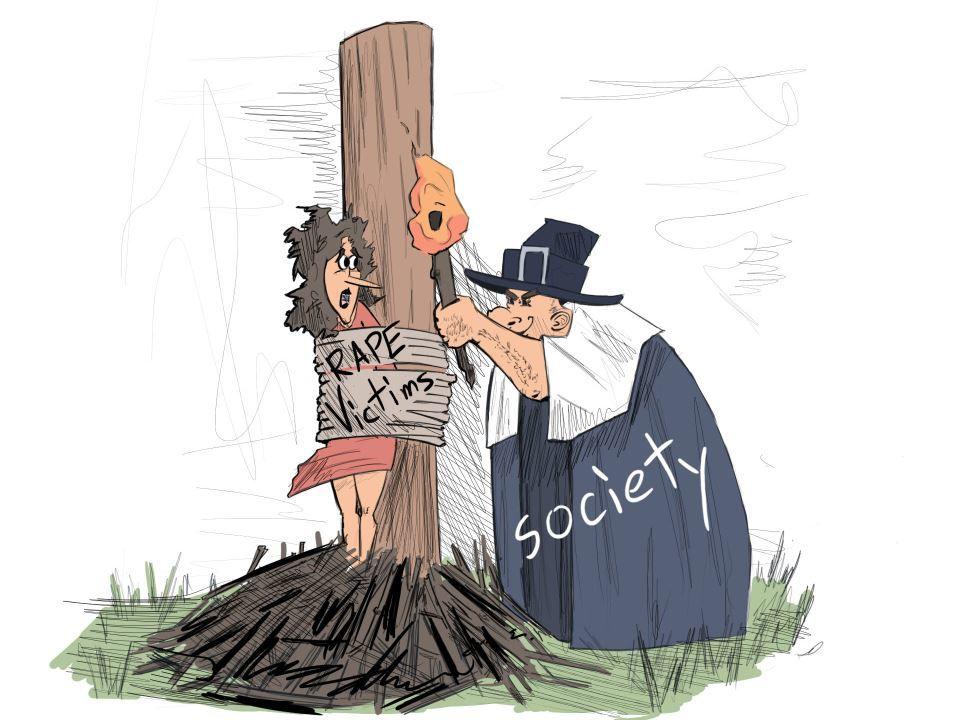The number one cause of rape is not revealing clothing. The number one cause of rape is not walking alone at night. The number one cause of rape is not someone changing their mind. The number one and only cause of rape is rapists.
Too often, society forgets this and attempts the shift the blame onto victims. Why did they wait so long? Weren’t they drunk? Did they say no?
To attempt to blame a victim of sexual assault in any way for the traumatic experience they’ve had is nothing short of wrong. No action of a survivor could have warranted the vicious, terrible attack on their person they were forced to endure.
In the age of the #MeToo and #TimesUp movements, perpetrators of rape are being forced into the spotlight and held accountable for both their previous and current actions. Society’s prejudice against survivors of sexual assault has also become more pronounced than ever. Too often I see victims being blamed for their traumatizing experiences and ridiculed on social media.
A recent example is the Bill Cosby conviction which occurred just last week. After a series of accusations and being tried, Cosby was sentenced to three to 10 years in prison for his sexual assault history. What felt like a blow and a loss to many fans of his resulted in a confusion among many of them on social media. Many weren’t sure what to feel about their beloved television dad being sent to prison, and him being guilty of those crimes.
Another result of the conviction was an array of victim-blaming across various social media sites, such as Instagram, Snapchat and Twitter. Some blamed the women for accepting pills from a stranger, going somewhere private with a married man and for waiting so long to speak up. Not only were some of these accusations false and irrelevant, but a vicious reminder of how society treats survivors of sexual assault.
Too often, society wants to believe and force a narrative which says the victim had a choice in their attack. No one chooses to undergo the trauma of a sexual assault. This is part of what makes it an assault. These victims don’t consent to their experience, the choice they deserve to have is stripped away from them.
This is also what renders them blameless. How can they be judged or forced to accept responsibility for a matter they had no choice in?
Blaming victims is society’s way of ignoring the misguided teachings which have resulted in the prevalence of these kinds of assaults. Instead of teaching men and women not to be sexual abusers, society places the responsibility of preventing assault on victims.
Why do we teach the ones who have no choice in the matter to avoid these incidents, instead of trying to prevent it altogether? Consent has become a more prominent subject in sexual education in recent years, but it is not nearly as important in the conversation as it should be. Many members of society still fail to understand anything other than a definitive yes is a no.
A victim of sexual assault is not at blame, nor should they be blamed for what happened to them. Attempting to blame a victim forces an outdated and dangerous narrative that victims somehow have a choice in their assault. Instead, we must hold these criminals accountable for the pain and anguish they have caused.
Maya Stevenson is a 19-year-old English and economics sophomore from Baton Rouge, LPouisiana.





